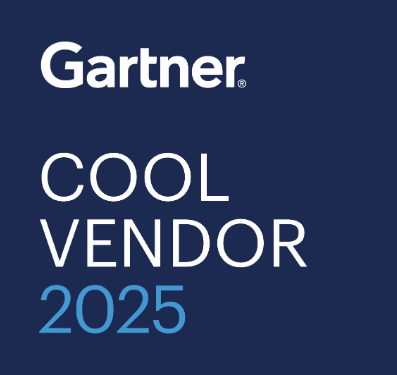Share this
FBI: Cybersecurity Threats in Renewable Energy - How a Zero Trust Approach Can Safeguard Infrastructure
by William Toll on Jul 10, 2024 7:55:27 PM
As the US renewable energy sector expands rapidly, so does its cybersecurity risk. A recent FBI alert highlights the growing threat to this critical infrastructure - here’s what you need to know and how your organization can fortify its defenses with a Zero Trust approach.
The Escalating Cyber Threat to Renewable Energy
The renewable energy sector stands at a critical juncture. With federal and local initiatives driving unprecedented growth, the industry is poised for a 15% annual expansion over the next decade. However, this growth comes with a significant caveat: an exponentially increasing cybersecurity risk.
The Federal Bureau of Investigation (FBI) has recently issued a stark warning through a Private Industry Notification (PIN). This alert underscores a troubling trend: malicious cyber actors are increasingly targeting the US renewable energy industry, seeking to:
- Disrupt power-generating operations
- Steal valuable intellectual property
- Ransom critical information essential for normal functionality
Is your renewable energy infrastructure prepared for these emerging threats?
A Glimpse into the Past: Learning from History
To understand the gravity of the situation, we need only look to recent history. In 2019, a private company operating solar assets in the United States fell victim to a sophisticated cyberattack. The result? A loss of visibility into approximately 500 MW of wind and photovoltaic sites across multiple states. This incident, which exploited an unpatched firewall, serves as a sobering reminder of the vulnerabilities inherent in our rapidly evolving energy infrastructure.
FBI Recommendations: A Blueprint for Cybersecurity Resilience
In response to these emerging threats, the FBI has outlined a comprehensive set of recommendations. These guidelines serve as a foundational framework for developing a resilient security infrastructure:
- Vigilant Network Monitoring: Implement continuous surveillance of network activity to detect unusual or suspicious traffic patterns.
- Infrastructure Fortification: Regularly update and patch network infrastructure, including firewalls and antivirus software.
- Principle of Least Privilege: Conduct thorough audits of user accounts with administrative privileges and configure access controls based on the principle of least privilege.
- Network Segmentation: Employ robust network segmentation strategies to contain potential ransomware spread and restrict lateral movement within the network.
- Resource Access Limitation: Implement strict controls on access to internal network resources, with particular emphasis on restricting Remote Desktop Protocol (RDP) usage.
But how can renewable energy companies effectively implement these recommendations? This is where Elisity’s Zero Trust microsegmentation platform approach can make a difference.
Elisity’s Zero Trust Approach: A Paradigm Shift in Cybersecurity
Elisity stands at the Zero Trust movement's forefront, aligning seamlessly with the FBI’s recommendations. But what exactly is Zero Trust, and why is it crucial for the renewable energy sector?
Zero Trust operates on a simple yet powerful principle: “never trust, always verify.” This approach requires continuous authentication and authorization for all users, devices, and applications, regardless of their location within or outside the network perimeter.
How Elisity’s Platform Addresses the FBI’s Concerns
Let’s break down Elisity’s key capabilities and how they directly address the FBI’s recommendations:
- Real-time Network Visibility and Analytics
- What it does: Offers unparalleled insights into network activity, enabling administrators to monitor logon/logoff events, visualize traffic flows, and swiftly analyze system events and logs.
- Why it matters: This capability is crucial for identifying and responding to potential threats in real-time, aligning with the FBI’s recommendation for vigilant network monitoring.
- Risk-Based Access Control
- What it does: Ingests risk score data from various sources, including firewalls and endpoint security solutions, to provide a nuanced understanding of device security postures.
- Why it matters: This granular approach to risk assessment enables more informed and dynamic access control decisions, supporting the principle of least privilege.
- Identity-Based Microsegmentation
- What it does: Leverages identity-based microsegmentation to create highly granular access policies, managed in the cloud and enforced continuously in real-time.
- Why it matters: This effectively mitigates the risk of lateral movement by potential attackers, addressing the FBI’s recommendation for robust network segmentation.
- AI/ML-Powered Device Detection
- What it does: Utilizes advanced artificial intelligence and machine learning algorithms to automate the discovery of network assets and policy enforcement.
- Why it matters: This proactive approach to threat detection significantly enhances an organization’s ability to identify and respond to potential security breaches, supporting comprehensive network monitoring.
- Security and IT Stack Integration
- What it does: Seamlessly integrates with existing security ecosystems, enabling a unified and scalable approach to cybersecurity.
- Why it matters: This aligns with the FBI’s recommendation for comprehensive security measures, ensuring that Elisity’s solution works in harmony with your existing security infrastructure.
Real-World Impact: Elisity in Action
Consider this scenario: A large-scale solar farm operation implements Elisity’s Zero Trust platform. By creating distinct microsegments for critical operational technology (OT) systems, such as inverters and monitoring equipment, access to these segments is strictly controlled based on user identity and device posture.
Moreover, by integrating with existing security tools and leveraging risk score data, Elisity’s solution automatically and dynamically adjusts access policies in response to changing threat levels. This adaptive approach ensures that the solar farm’s cybersecurity posture remains robust and responsive to evolving threats, effectively safeguarding both operational integrity and sensitive intellectual property.
Network Segmentation is a Key Recommendation of the FBI
As the renewable energy sector continues its trajectory of growth and innovation, the imperative for robust cybersecurity measures becomes increasingly apparent. The FBI’s recent alert serves as a timely reminder of the sophisticated threats facing this critical infrastructure.
Don’t wait for a cyberattack to expose your organization’s vulnerabilities. Elisity’s Zero Trust microsegmentation platform offers a comprehensive solution to these challenges, aligning closely with the FBI’s recommendations and enabling key strategies to safeguard the future of renewable energy.
Take the Next Step in Securing Your Organization’s Infrastructure
Schedule a demo with Elisity today to see Elisity can transform your cybersecurity posture and align your defenses with the FBI’s critical recommendations.
Share this
- Enterprise Cybersecurity (55)
- Zero Trust (22)
- Microsegmentation (18)
- Lateral Movement (9)
- Elisity (8)
- Enterprise Architecture Security (8)
- Network Security (6)
- Ransomware (6)
- Identity (5)
- Cyber Resilience (4)
- Elisity Release (4)
- Remote Access (4)
- Cybersecurity Healthcare (2)
- Identity and Access Management (2)
- Forrester (1)
- Information Security (1)
- MITRE (1)
- January 2026 (3)
- December 2025 (4)
- November 2025 (3)
- October 2025 (5)
- September 2025 (4)
- August 2025 (5)
- July 2025 (5)
- June 2025 (5)
- May 2025 (4)
- April 2025 (5)
- March 2025 (6)
- February 2025 (3)
- January 2025 (5)
- December 2024 (4)
- November 2024 (5)
- October 2024 (7)
- September 2024 (5)
- August 2024 (3)
- July 2024 (4)
- June 2024 (2)
- April 2024 (3)
- March 2024 (2)
- February 2024 (1)
- January 2024 (3)
- December 2023 (1)
- November 2023 (1)
- October 2023 (2)
- September 2023 (3)
- June 2023 (1)
- May 2023 (3)
- April 2023 (1)
- March 2023 (6)
- February 2023 (4)
- January 2023 (3)
- December 2022 (8)
- November 2022 (3)
- October 2022 (1)
- July 2022 (1)
- May 2022 (1)
- February 2022 (1)
- November 2021 (1)
- August 2021 (1)
- May 2021 (2)
- April 2021 (2)
- March 2021 (3)
- February 2021 (1)
- November 2020 (2)
- October 2020 (1)
- September 2020 (1)
- August 2020 (3)





No Comments Yet
Let us know what you think